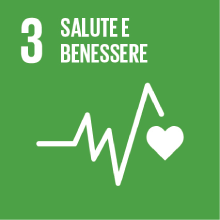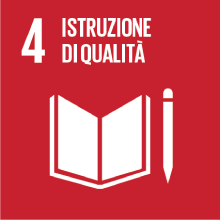NANOMATERIAL-BASED THERAPEUTICS FROM THE HOST TO THE GUEST: CANCER THERAPY AND MICROBIOME INTERVENTION
- Anno accademico
- 2024/2025 Programmi anni precedenti
- Titolo corso in inglese
- NANOMATERIAL-BASED THERAPEUTICS FROM THE HOST TO THE GUEST: CANCER THERAPY AND MICROBIOME INTERVENTION
- Codice insegnamento
- PHD180 (AF:544347 AR:310925)
- Modalità
- In presenza
- Crediti formativi universitari
- 8
- Livello laurea
- Corso di Dottorato (D.M.226/2021)
- Settore scientifico disciplinare
- BIO/11
- Periodo
- II Semestre
- Anno corso
- 1
- Spazio Moodle
- Link allo spazio del corso
Inquadramento dell'insegnamento nel percorso del corso di studio
Risultati di apprendimento attesi
Prerequisiti
Contenuti
• Chemotherapy – a historical overview with examples focused on the development and application of nitrogen mustard, folic acid, vinca alkaloids, taxanes and cisplatin.
• Target therapies - the development and application of Imatinib, Gefitinib and Bevacizumab
• Hallmarks of cancers - an analysis of the principles, which govern cancer complexity: Sustaining proliferative signalling, Evading growth suppressors, Resisting cell death, Enabling replicative immortality, Inducing angiogenesis, Activating invasion and metastasis, Reprogramming energy metabolism and Evading immune destruction.
• Barriers in drug delivery – principles of nanomedicine and the biological barriers: passive vs active targeting, the mononuclear phagocyte system, nonspecific distribution of nanoparticles, hemorheological limitations, intratumoral pressure, cell membrane internalization, endosomal escape and multi drug resistance mechanisms.
• Misunderstandings and pitfalls - common mistakes and underestimations in nanoparticle testing: nanoparticles extravasion, tissue penetration and formulation; difference between mouse models and human; approaches to metastatic cancer; personalized therapy.
• Doxil, a history of success - rational for the development of a liposomal drug: Slow drug release, Site avoidance, Accumulation in the tumor, Protein binding, RES clearance, Glomerular filtration, Microvasculature permeability, Extravascular transport; Stealth technology and Remote loading; Applications in clinic.
• CRISPR/CAS9 technology – a historical overview; bacterial CRISPR-CAS systems; CRISPR technology in human; Applications and limitations in cancer.
• RNA Therapeutics - a historical overview and the important achieved milestones
Part II (15hours)
• Human microbiome: Overview of microbiome composition; diversity of human microbiotas; the central rule of gut microbiome; microbiome-host coevolution; microbiome in health and diseases;
• Gut microbiome-organ axis: gut-brain axis, gut-skin axis; gut-vagina axis, gut-liver axis, gut-lung axis;
• Based therapeutics for microbiome intervention: prebiotics, probiotics, postbiotics, fecal microbial transplantation;
• Targeting the gut and tumor microbiota in cancer, gut oncomicrobiome signatures associated with cancer diagnosis, tissue-based and tumor-based microorganisms
• Nanomaterial-based therapeutics for antibiotic-resistant bacterial infections
• Biogenesis of nanoparticles from producer bacterial strains
• Nanotechnology intervention of the gut microbiome for cancer therapy: nanotechnology manipulating microbiome metabolites, nanotechnology for microbiome modulation, microbe-inspired nanotechnologies, challenges and perspective
• In vitro, in vivo and ex vivo models to study tumor-microbiome interaction and microbiome intervention for human diseases
Testi di riferimento
Modalità di verifica dell'apprendimento
Integration of Course Content: The student’s ability to incorporate at least one relevant concept from the course into their current PhD research project, demonstrating a clear connection between theory and practice.
Critical Thinking Skills: The candidate’s ability to engage in critical analysis of the topic presented, showcasing a depth of understanding and thoughtful evaluation of the material.
Expository and Communication Skills: Clarity of presentation, formal and concise expression of ideas, and the use of appropriate scientific language throughout the discourse. The ability to respond effectively and coherently to questions posed by the evaluators will also be assessed.
Participation and Engagement: Active and consistent participation in lessons will be considered in the final evaluation, reflecting the candidate's commitment to the course material.
The final grade will be calculated based on the scores achieved in each of these areas, following the criteria below:
18-23: Adequate basic knowledge with some uncertainties in presentation. The student demonstrates a general understanding of the topic, though with some gaps or difficulties in critical analysis.
24-26: Solid knowledge and the ability to apply concepts correctly. Clear presentation, with good command of scientific terminology and effective communication.
27-29: Excellent understanding and ability to connect and integrate theoretical concepts with research. Presentation is fluent, precise, and well-organized.
30 and 30L: Comprehensive knowledge, impeccable presentation, and the ability to critically analyze and establish complex connections. Honors are awarded for exceptional performance, demonstrating skills well above average.
Modalità di esame
Metodi didattici
Obiettivi Agenda 2030 per lo sviluppo sostenibile
Questo insegnamento tratta argomenti connessi alla macroarea "Capitale umano, salute, educazione" e concorre alla realizzazione dei relativi obiettivi ONU dell'Agenda 2030 per lo Sviluppo Sostenibile


